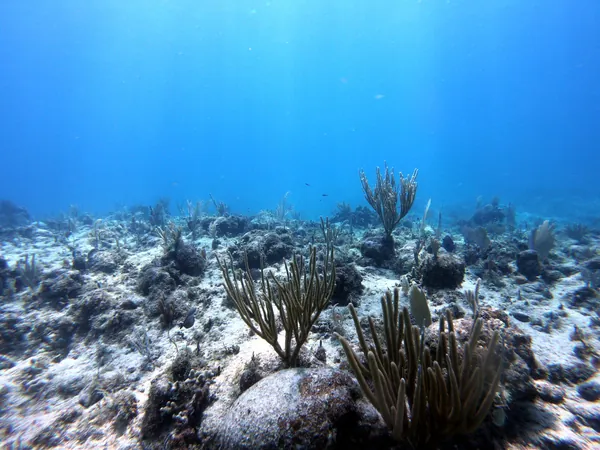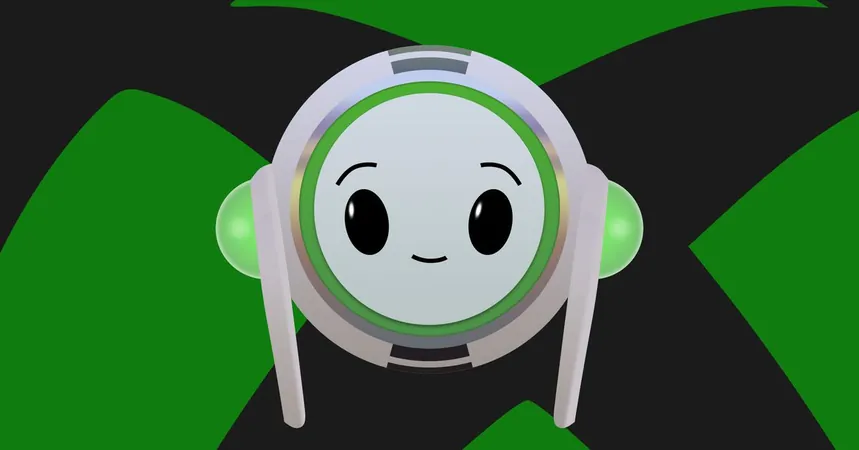
Coral Larvae Choose Homes Based on Ocean Sounds: A Game-Changer for Reef Restoration!
2024-10-24
Author: Yu
Coral Larvae and Their Home Preferences
Have you ever thought about what influences your decision to call somewhere home? For many, it might include the convenience of a short commute or the quality of local schools. But what if you were a coral larva? Would the surrounding ocean sounds play a pivotal role in your choice?
Groundbreaking Research from WHOI
Exciting new research from the Woods Hole Oceanographic Institution (WHOI) in Massachusetts reveals that larval coral actually do rely on the auditory signals of healthy coral reefs to decide where to settle. This groundbreaking study focuses on the golfball coral larvae and marks the second instance of a coral species reacting positively to the sounds associated with thriving reef ecosystems.
The Role of Sound in Coral Settlement
By using recordings of the bustling life of a healthy reef — the clicks of snapping shrimp, the grunts of feeding fish, and other dynamic underwater sounds — scientists were able to coax larval corals to settle in degraded areas. This could revolutionize coral restoration efforts, revitalizing damaged reefs on a larger scale.
Expert Insights on Coral Restoration
"Acoustic enrichment shows tremendous potential as a technique to amplify coral settlement rates," said Nadège Aoki, a doctoral candidate at WHOI and lead author of a recent study published in JASA Express Letters. Their findings underscore the urgency of utilizing such tools, especially as coral reefs globally face unprecedented threats from climate change, pollution, and overfishing.
The Decline of Coral Reefs
Coral reefs, vital for supporting marine life and the livelihoods of over one billion people, have seen a staggering 25% decline in the last three decades. With the stakes so high, methodologies like acoustic enrichment might become indispensable in ongoing restoration projects worldwide.
Timing is Essential for Coral Settlement
However, there is a crucial time window for this technique to be effective. Coral larvae generally have a strong inclination to settle within the first 36 hours of being released into the water. Past this period, their chances of finding an ideal spot significantly drop, which makes timing essential. During this brief larval stage, corals search for suitable settlement sites, guided not just by chemicals and light, but, as this study highlights, also by sound.
Success in Lab Conditions
Aoki and her research team demonstrated that broadcasting underwater sounds can successfully prompt golfball coral larvae to settle in previously damaged habitats. The challenge, however, lies in the larvae's short viability window; traditionally, they prefer to settle in the first 8 to 36 hours, thus necessitating a swift response to the right acoustic cues.
Implications of the Research
The implications of this research are vast. As Aoki puts it, “Understanding the intricacies of coral biology will open up a wealth of questions about how different species respond to sound.” With varying reproductive strategies across coral species, tailored approaches could yield even better outcomes.
Future of Coral Restoration
While establishing attractive environments for corals in laboratory conditions is difficult, the success of these sound-based strategies in controlled settings suggests robust real-world applications. Researchers remain optimistic, believing that acoustic enrichment, when coupled with thorough knowledge of local ecosystems, could significantly enhance coral restoration endeavors.
A Multifaceted Strategy Required
Marine biologist Aran Mooney, a senior author of the study, also highlights the importance of a comprehensive approach: “The findings show promise and scalability, but we must understand the ecological context rather than simply using speakers. Restoration requires a multifaceted strategy.”
Conclusion: A Hopeful Future for Coral Reefs
As coral reefs continue to dwindle, innovative solutions like this offer hope for their revival. The future may well depend on the melodies of the ocean—an orchestra under the sea guiding coral larvae home!


 Brasil (PT)
Brasil (PT)
 Canada (EN)
Canada (EN)
 Chile (ES)
Chile (ES)
 España (ES)
España (ES)
 France (FR)
France (FR)
 Hong Kong (EN)
Hong Kong (EN)
 Italia (IT)
Italia (IT)
 日本 (JA)
日本 (JA)
 Magyarország (HU)
Magyarország (HU)
 Norge (NO)
Norge (NO)
 Polska (PL)
Polska (PL)
 Schweiz (DE)
Schweiz (DE)
 Singapore (EN)
Singapore (EN)
 Sverige (SV)
Sverige (SV)
 Suomi (FI)
Suomi (FI)
 Türkiye (TR)
Türkiye (TR)